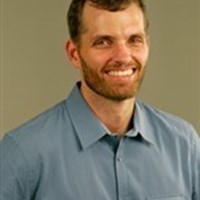Sustainable Models of Healthcare
- Panel Discussion
- Main Building ED 210/212
- November 10 2017 1:30 PM - 4:30 PM
The Biblical Foundation for Meeting Physical Needs as Ministry:
When we look at the life of Jesus, we see that His ministry had components of preaching (to the crowds), healing (individuals), and discipling (primarily the 12). As followers of Jesus, we want to do as He did. “Preach and heal” are not mutually exclusive things. While the spiritual realm is eternal and the physical realm is temporal, people still have real physical needs. Jesus did not ignore these needs. At the same time, many get so concerned about physical needs that they forget about the spiritual origin of these physical needs. As Christians, we know that the origin of death, pain, and disease ultimately goes back to man’s rebellion against God in the Garden. This discussion will attempt to establish a Biblical framework for healthcare ministry.
How God introduced me to His way of missions, that brought Him the glory due Him alone:
After experiencing the exhilaration of seeing God use my dental skills to serve His Kingdom, I became overwhelmed by the futility of going and doing. It was time for a new model, one that was consistent with the way God works. 12 years ago a group of us started training local believers to meet the dental needs of their community and witnessed, amazing God-sized results. Allow me to share what God did.
Short-Term Medical Missions Effect on Long-Term World Healthcare and the Kingdom of Heaven:
Short-Term Medical Missions are becoming a major factor in global healthcare that accounts for millions of dollars spent on travel, accommodations, personal time and effort, but are we truly impacting the Kingdom of Heaven. There is no standardize governing body to evaluate the quality, sustainability or accountability of Short Term Medical Mission’s. Since most organization reports are somewhat biased by their own reporting and when we stop and evaluate cost, efficiency and sustainability are we influencing world health without creating dependency and effectively sharing the good news? When we look at specific metrics, education is usually not a primary goal and in fact, the belief that any care is acceptable regardless of the quality, is widespread. It is the goal of many like-minded mission organizations that “education” of indigenous believers is the answer to the problem of dependency, sustainability, long-term world health and expanding the Kingdom of Heaven.
How to Develop Sustainable Healthcare on a Short Term Trip:
It is a general perception that the short-term missions is one sided. Often creating dependency- teams from USA go to the underdeveloped country to help and bring short term relief and address felt needs in the comminutes of the countries they visit. While that may be true, short term teams could actually do lots more by way of ‘passing on of skills’ and change the trend to make optimum use of the time and resources. Short term team could provide long term and sustainable projects and help move from ‘relief’ to ‘development’ and in establishing self sustaining projects that could be carried out by the local partners on an ongoing basis.Passing on the skills would thus make an impact on the ground.
The Long Term Impact of a Sustainable Healthcare Model:
A sustainable healthcare model is based on several factors: Preparing the local church through training, selecting the right students; practical and relevant training for the students; and follow up till the clinic volunteers become competent. The result they are able to minister wholistically to many patients over time and have a good business model that generates income to keep the medical ministry running.








